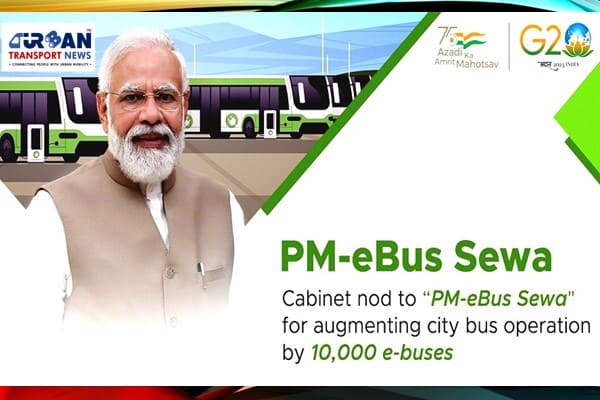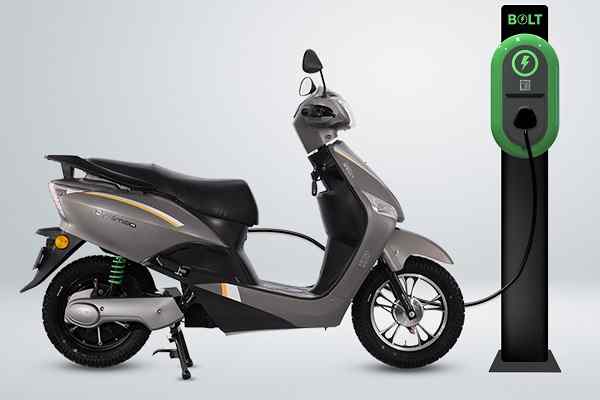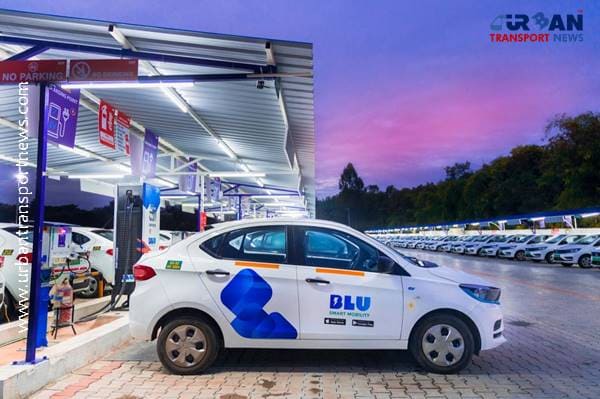 North-South Commuter Railway (NSCR): Modern Train Network Connecting Luzon Island
North-South Commuter Railway (NSCR): Modern Train Network Connecting Luzon Island India launched Bharat Taxi Service as First Cooperative-Owned Digital Mobility Platform
India launched Bharat Taxi Service as First Cooperative-Owned Digital Mobility Platform India places World’s First Live Commercial Order for Hyperloop-Based Cargo Logistics
India places World’s First Live Commercial Order for Hyperloop-Based Cargo Logistics How Weigh-in-Motion Systems Are Revolutionizing Freight Safety
How Weigh-in-Motion Systems Are Revolutionizing Freight Safety Women Powering India’s Electric Mobility Revolution
Women Powering India’s Electric Mobility Revolution Rail Chamber Launched to Strengthen India’s Global Railway Leadership
Rail Chamber Launched to Strengthen India’s Global Railway Leadership Wage and Hour Enforcement Under the Massachusetts Wage Act and Connecticut Labor Standards
Wage and Hour Enforcement Under the Massachusetts Wage Act and Connecticut Labor Standards MRT‑7: Manila’s Northern Metro Lifeline on the Horizon
MRT‑7: Manila’s Northern Metro Lifeline on the Horizon Delhi unveils ambitious Urban Mobility Vision: Luxury Metro Coaches, New Tunnels and Pod Taxi
Delhi unveils ambitious Urban Mobility Vision: Luxury Metro Coaches, New Tunnels and Pod Taxi Qatar approves Saudi Rail Link Agreement, Accelerating Gulf Railway Vision 2030
Qatar approves Saudi Rail Link Agreement, Accelerating Gulf Railway Vision 2030
PM eBUS Sewa: ₹57,600 crore Investment Plan to revolutionise City Bus operations in India

The Government of India has given the green signal to the groundbreaking PM-eBUS Sewa initiative, a bold step towards advancing and fortifying City Bus Operations in the country. This ambitious program comes with a plethora of key features and a promising set of expected outcomes, yet also faces a host of challenges that need to be addressed for its successful execution.
Key Features of PM-eBUS Sewa
Under the visionary PM-eBUS Sewa, the Indian landscape is set to witness the deployment of 10,000 e-Buses nationwide. This sweeping initiative aims to encompass 169 cities with a population exceeding 3 Lakhs. The implementation of this transformative project is slated to take place through a Public-Private Partnership (PPP) format, ensuring efficient collaboration between governmental bodies and private entities. The projected cost of the initiative stands at a formidable INR 57,600 Crores, with a significant backing of INR 20,000 Crores from the Central Government. Furthermore, this dynamic initiative is poised to generate an estimated 45,000 to 55,000 direct employment opportunities, fostering economic growth in addition to its environmental goals. The PM-eBUS Sewa scheme is set to span a decade, ensuring a sustained and meaningful impact.
Anticipated Outcomes and Benefits
The far-reaching objectives of the PM-eBUS Sewa scheme encompass a range of positive outcomes. This visionary program aims to stimulate the adoption of e-mobility, paving the way for cleaner and more sustainable transportation solutions. Furthermore, the initiative extends its support towards the development of charging infrastructure, aligning with the Green Urban Mobility Initiatives. By promoting innovation in the e-mobility sector, the scheme fuels technological advancements. The transition to electric mobility is poised to drastically reduce noise and air pollution, while also curbing carbon emissions. Importantly, the adoption of bus-based public transportation is a significant step towards reducing greenhouse gas emissions, contributing to a greener environment.
Navigating Challenges and Roadblocks
Despite its potential, the PM-eBUS Sewa initiative grapples with a set of formidable challenges. The scheme's reliance on the PPP format highlights the lack of understanding and expertise within local bodies to effectively manage procurement processes. A key concern arises from the operational and maintenance aspects within local administration. Funding constraints also pose a significant hurdle, as many local bodies struggle to maintain reliable revenue streams and are dependent on state finances. The well-intentioned 10-year support period may be overshadowed by operational difficulties, given the historical inefficiencies of city bus services.
The Path Ahead: Overcoming Challenges for Success
To overcome the challenges and pave the way for the successful implementation of PM-eBUS Sewa, a comprehensive approach is vital. Attention to detail is imperative, including clear procurement guidelines that preferably involve centralized procurement. Selecting Concessionaires and Operators at the central or state level can streamline the bid process. Comprehensive Techno-Commercial Feasibility studies for each city agent will ensure tailored implementation. Detailed financial viability assessments are essential, while central monitoring will ensure operational efficiency. Expertise and guidance for route planning, fare structure, and maintenance need to be centrally provided. The creation of a common toolkit and definitive documents can ensure uniformity across locations. Performance indicators, KRAs, and viability gap assessments will contribute to a well-rounded strategy.
In summary, the PM-eBUS Sewa initiative holds tremendous promise in revolutionizing India's City Bus Operations. By navigating challenges strategically, streamlining procedures, and offering robust support, this visionary scheme can emerge as a beacon of sustainable and efficient urban mobility.






